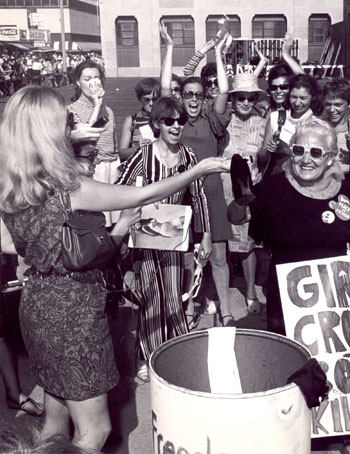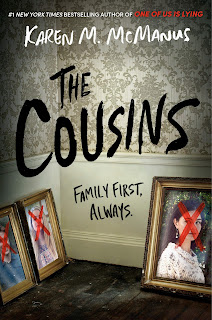In August I finished my Master's Degree at Wayne State University, with a concentration in Composition and Rhetoric. For two years I shuffled down to Detroit 2 days a week, rain, snow, and sunshine, to further my education. I did so whilst working a full-time job teaching (though no children-I don't know how those people do it!). So many hours at my computer, punching out the correct letters into words, phrases, sentences, paragraphs, papers. I am very excited to be finished!
In our household education is most important, be it bookwork or otherwise. One of the first questions from my beloved fiance after receiving my diploma: what are you doing next? Of course! Not even a moment's break! But I can't complain, as his efforts match my own ambition. I've signed up for a grant writing workshop in the meantime, just to satisfy my own hunger for knowledge.
If only learning could look this pretty!
So, to honor the (many) months of hard work, I have chosen to put my essay out there for everyone to see. As a person who LOVES attention, I am more than excited to share my work. As a writer that just toiled for what seemed years, I am terrified to share my work. About 9 months of work...could I call this my child?
Yet I am choosing to do so because it pertains to my passion: reenacting. I'm not completely sure, but it may be the first academically recognized essay that relates to the civilian reenacting community, specifically the Progressive and Mainstream movements. It is certainly a first from a Composition and Rhetoric perspective. Trust me, if it already existed, I would have found it.
But before you read...
I'd like to first explain a bit. First, the title:
A Feminist Perspective of Historical Reproduction:
The Civilian Civil War Reenacting Community
Right now there is quite an argument about the implications of the term "feminism." According to almighty Google, the word means: "the advocacy of women's rights on the grounds of political, social, and economic equality to men." On a basic level it sounds completely awesome. No matter your perspective of the word, equal rights for opportunities, such as voting, is amazing.
The word "feminism" today sometimes brings to mind a man-hating, bra-burning female, shunning traditional female roles. Personally, I get along with most men, keep my bras safe from fire, and enjoy the domestic arts (and still consider myself a feminist). In the purest sense, feminism wants women to be treated equally. If I'm doing the exact same job just as well as a man, I should be paid and treated the same. I should be allowed to make my own medical decisions. Women should have a voice in politics. On the flip side, I believe men and women should have equal custody rights. Men should be allowed to openly express themselves without fear of ridicule. Male maternity leave! Feminism means "equal," not "women are better than men."
In terms of my essay, I believe that using the idea of feminism applies to reenacting in several ways. Think about it-how long ago was it that women were just "camp followers" at events? Today they are essential to the reenactment! This also applies to the civilian impression in general, male or female (I feel another essay coming on...). For a long time, most of the books/magazines/websites represented a mostly military perspective of the war; these rarely included women. What a change! My research/talent is not relegated to the sidelines because it only concens the "daily life," rather than major engagements of the war.
It is very possible that some of my readers may disagree with any of my above statements or my thesis in general. That's totally cool-logical, educated discussion turns the world round! If we all agree about everything, then how do we make change for the better? I will add, however, that rude/sarcastic commentary will not be tolerated.
So here it is, the fruit of my labor. I'm proud of it.
~Kristen

.jpg)





Here is the snitty comment I woke up to this morning:
ReplyDeleteAnonymous has left a new comment on your post "Kristen: My Master's Essay":
Actually, reenactments were begun by many of the original veterans at their reunions. The NSSA is alive and well. Without the efforts of ladies like Chris Catalfamo, the hobby would never have included women. I suggest you look beyond one particular INTERNET site and get some field experience.
Posted by Anonymous to The Victorian Needle at October 24, 2014 at 11:39 PM
First of all, I realize that one of my comments about the NSSA was written incorrectly. I said that they no longer exist; I should have noted that they exist in a different form, and that individual units have become more prominent. That slipped by myself and many editors, including several reenactors that have been reenacting for a very long time. It is easily fixed, and I would not even begin to argue that point. I like posting accurate information, so it will be changed.
However, dragging Chris Catalfamo into the rude comment was just plain stupid. She was an amazing reenactor, a good friend to many. I highly doubt that Chris's family would want her name associated with this unpleasantness, and I am hesitant to even release this comment. I am offended that someone would do that even if I did not personally know her.
As for me looking beyond one site, it is clear that "Anonymous" did not look to my sources section. Again, my mistake was the result of an editing snafu, rather than maliciousness or a lack of reading. I sincerely hope that person was just a troll, because if he/she is a reenactor, then we are all at risk of being represented poorly. As for me gaining field experience...I think I just did...
Nope! It was a maliciousness. I hope this person learns to treat other people better.
ReplyDeleteThank you so much for sharing your paper, Kristin! As a non-military male reenactor (musician playing period music), I appreciate the effort the ladies put into portraying the civilian side of the period. Best wishes on the completion of your degree! I hope you continue to write and publish and talk about these issues. (If you are not already familiar with it, you might be interested in Karlyn Campbell's 1989 2-volume study Man Cannot Speak For Her, a rhetorical study of speeches by women from the 1830s to the 1920s.) -Gary Plazyk
ReplyDelete